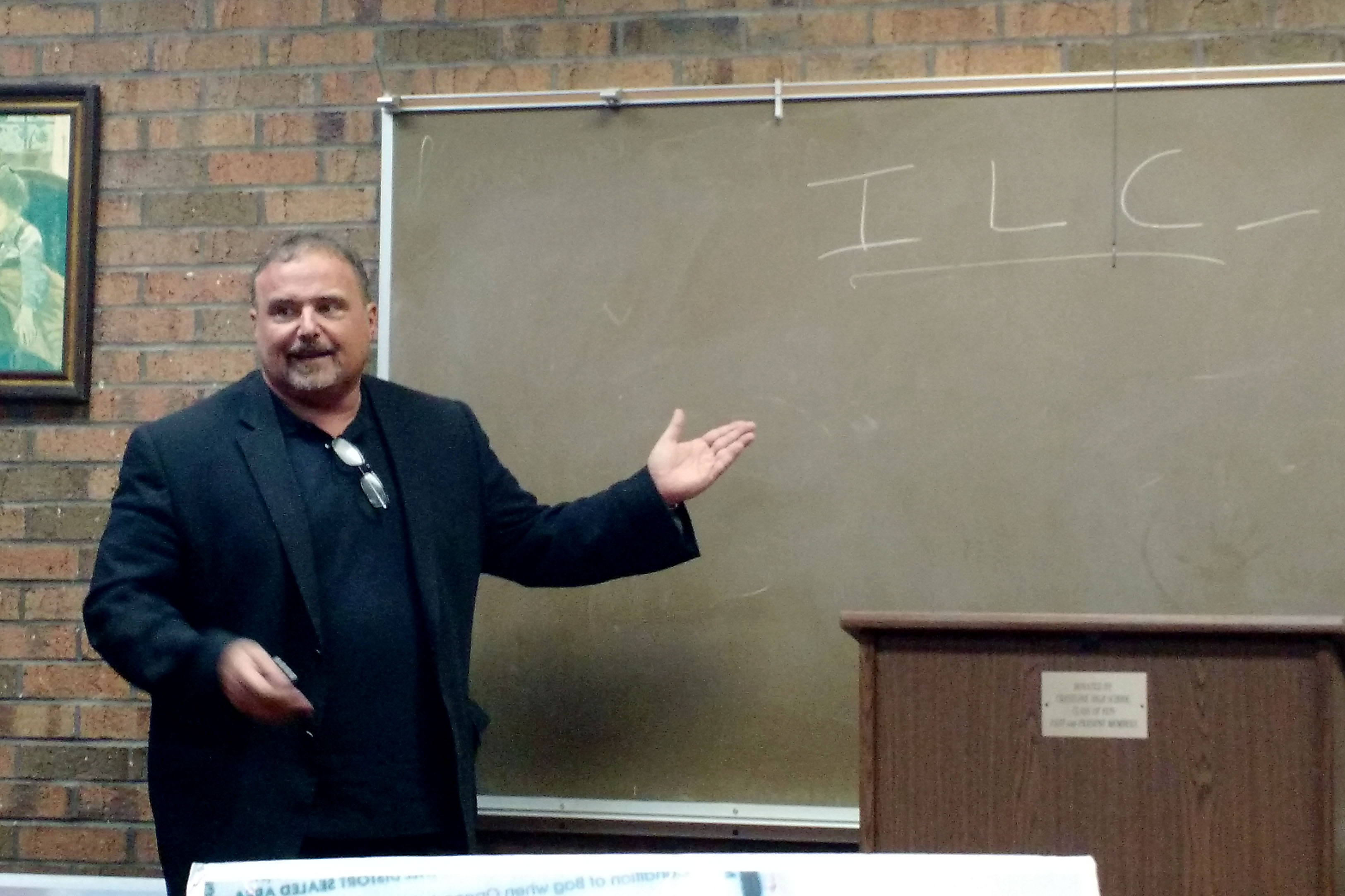Crawford County Common Pleas Court Judge Sean Leuthold has made waves ever since taking the bench nearly a year ago.
Since that time, the county has seen a record number of indictments and a significant increase of defendants sent to jail. Some of Leuthold’s refrains have become nearly commonplace in the courtroom as he takes a hardline stance against drugs. From the oft uttered “this is not the county to be doing drugs” to the unusual “three idiots with a pellet gun,” Leuthold has made his mark on Crawford County, whether residents believe it is for good or bad.
So who is Sean Leuthold and what is he doing on Crawford County Now’s opinion page? Well, we have opened the floor for the judge to speak about whatever he wants to talk about. Over the next five days we will be running a five-part introduction piece on Crawford County Common Pleas Court Judge Sean Leuthold. Each day will feature a different section of the interview our reporter Krystal Smalley had with Leuthold about himself and the justice system in Crawford County. After that, Leuthold will occasionally submit articles to us that will cover a range of topics of his choosing.
Welcome to . . . The Judge’s Chambers.
Krystal: Because you have been so tough on this, we’ve seen a lot more people going to jail and prison. How has that affected the extra jail costs?
Leuthold: Actually, I’m glad you brought that up. That was another thing that I found very frustrating. As Muni Court judge I would go out to the jail once or twice a week to determine whether people were being held properly and to try to help manage the jail population. And that was difficult because our jail houses, at most, 120 people, but it really should not get that high. It needs to stay right around 115. When it gets more than that there’s not enough room, it’s extra danger for the COs, it’s a terrible situation. So I would be out there nonstop trying to figure out how in the heck to manage this thing.
One of the issues that I thought would help is a person would be arrested for a crime and they would sit out there for month after month after month – several months – before a case would ever get resolved. When it would get resolved, sometimes the person would go to prison or sometimes they would have so much jail time in they never actually get prison.
One of the most frustrating days I ever had as a judge is when I came and determined that a 10-month sentence was appropriate – that’s really all I could, I gave that guy 10 months in prison – and then we sat down and figured it all up. He had already been in county jail more than 10 months, so I just let him go.
That didn’t seem to make sense that we keep people in jail when they should be in prison. There’s a nickname, I’ve got a nickname for the way I run the court. It’s called the Rocket Docket, which means I move things extremely quickly, especially probation violations. If someone has a probation violation they get an initial hearing and usually within 10 to 14 days they have the final hearing; if they’re to be sent to prison they go. The average stay for someone out at the county jail is very short, usually less than 30 days if I can help it.
Now, you’re going to have complicated days where that’s impossible; but, for the most part, I would say we have people sitting out at the county jail for a very short period of time and then they move on to prison. Because of that we’re able to deal with our jail population a lot better and, quite frankly, we’re able to deal with more people. There were almost 400 indictments this year. If we didn’t have the Rocket Docket, there’s no way that a court could have administered 400 felonies as well as all the probation violations and kept the jail at a reasonable amount. We have stayed at an acceptable amount. A couple of weeks ago we were down to 89 because we have moved so many people in and out. I think it’s back up again. But we keep it at an acceptable level and keep everyone flowing in and out.
Keep in mind, it’s not only felonies but I need room out there for people who commit misdemeanor crimes, too. By moving the felonies so much faster, we’re keeping room. A good way to look at it is this: the average misdemeanor stay is, say, 10 days in jail. If I keep someone out there in the county jail on a felony for 100 days, well that means that there 10 people who can’t serve their misdemeanor sentences because I’ve got the guy out there. Two hundred days? Then there’s 20 people who can’t serve them. Three hundred days? There’s 30 people who can’t serve their misdemeanor sentence. That’s one of the things I want to avoid.


